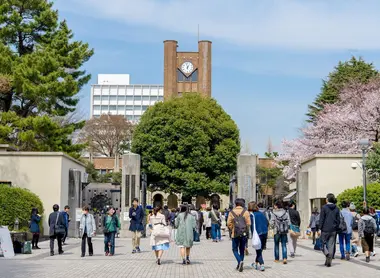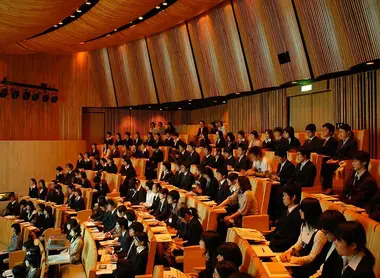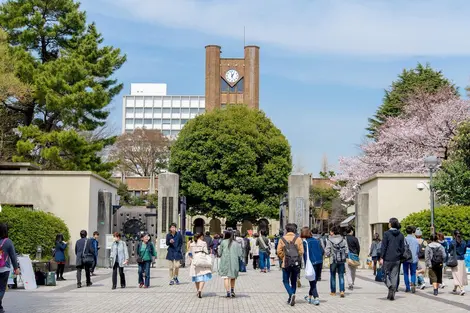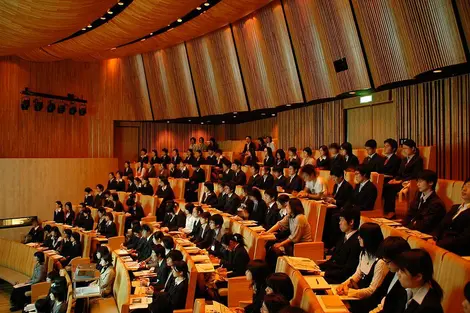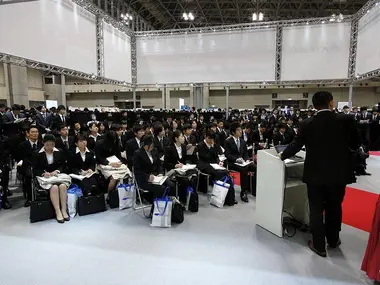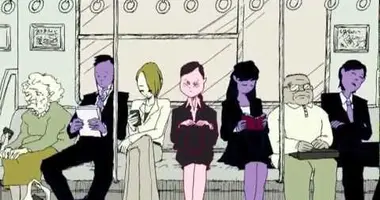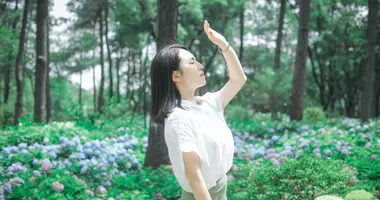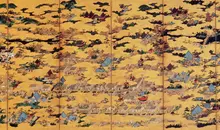The Shukatsu 就活
- Pubblicato il : 24/08/2018
- Per : S.R.
- Youtube
Le job hunting à la japonaise
Au milieu de leurtroisième année d'étude, les Japonais entament la recherche d'unemploi, qui pourrait bien être le seul de leur vie. Cette rechercheardue – qui commence près de deux ans avant l'obtention dudiplôme ! - faite de nombreuses demandes d'emploi, deséminaires et de longs processus de sélection est connue sous lenom de "shûkatsu".
A process that starts early
Shûkatsu is the contraction of "shûshoku katsudô " or "job search activity." And all the Japanese will tell you that it is a demanding activity! From October of their third year (the bachelor's degree is obtained in four years in Japan), university students prepare for research since it is pretty rare to continue studies up to the master's degree. They begin by researching companies they could work for, possible internships, and attending seminars on job interviews.
Read also: The Japanese school system.
The second stage begins on December 1 with the publication of job offers. The students then multiply the sending of applications. According to the Japanese job information site, each student prepares at least one hundred applications on average. At the same time, they begin to participate in setsumeikai, informal briefings with companies.
Integrate company codes
From then on, the Japanese fully embrace corporate expectations by putting their individuality aside. They cut their hair, dye it black (if they've splurged before), and buy a suit of business demands. The rest of the process will put the candidate to grapple with personality and aptitude tests, group interviews, and individual interviews for each job offer!
Expectations of employers can be very pointed (and surprising!), such as apologizing twice before leaving the room or greeting the interviewer at the right time.
Read also: Holidays in Japan.
A protest movement against shukatsu?
Globalization and the connection of cultures have brought young Japanese into contact with other ways of doing things, which has led to the criticism of a certain number of customs from which shûkatsu is no exception. Reactions appear, such as the idol group Kichohanakan whose objective is to show the difficulty of this process that young women endure.
Below is a video that went viral a few years ago that is representative of the criticism some Japanese may have of shukatsu.

